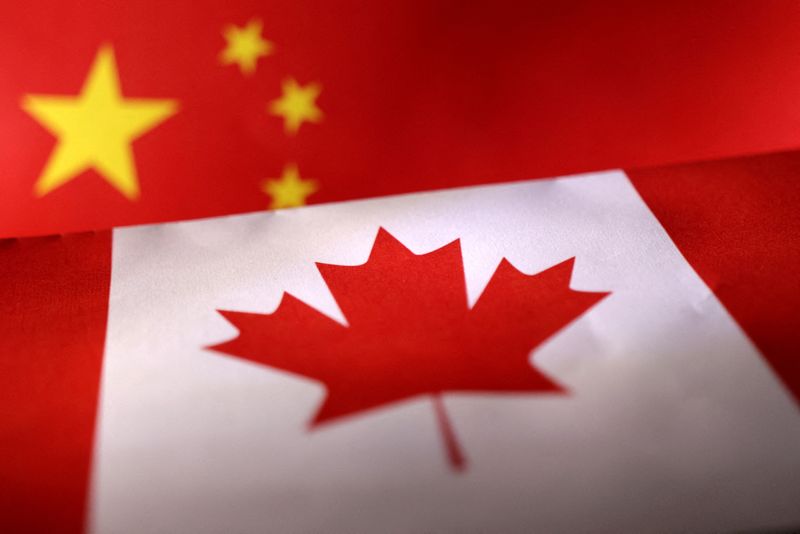By Steve Scherer and Fergal Smith
OTTAWA/TORONTO (Reuters) - China's rapid reopening is likely to fuel demand for commodities produced in abundance by Canada, potentially helping Canada's economy avoid a recession as long as it does not also force up inflation and spur further interest-rate hikes.
The Bank of Canada last month hiked its key interest rate to 4.5%, the highest level in 15 years, and said the economy will stall in the first half of the year and could tip into recession. That prompted the central bank to pause its most aggressive tightening cycle for now, becoming the first major central bank to do so.
But analysts say a rebounding Chinese economy will likely fuel demand for Canada's major exports, including oil, natural gas, grain, cereals and other goods, making a much-desired soft landing for the economy more likely than previously thought.
China, the world's second-biggest economy, has lifted many of the most debilitating restrictions after abruptly jettisoning its strict "zero COVID" policy in December.
"We are really seeing China roaring back with expected growth, liquidity and fiscal spending accelerating from here, with the Canadian dollar and Canadian stocks being major beneficiaries," said Joseph Abramson, co-chief investment officer at Northland Wealth Management.
Traders have already bid up Canadian stocks and the Canadian dollar, dubbed a 'commodity currency', since the news of China reopening surfaced in December. The benchmark stock market, which has a roughly 30% weighting in energy and mining stocks, is up nearly 8% while the loonie has gained 1.8% against the U.S. dollar.
Doug Porter, chief economist at BMO Capital Markets, said that for Canada, China's reopening is more a "clear-cut positive" than it would be for other countries with fewer commodities exports.
Canada has the world's third-largest reserves of oil, which climbed as much as 17.9% since China began relaxing its restrictions in December before giving back much of those gains.
But China's reopening-driven oil price rise could stoke inflationary pressures, which Bank of Canada Governor Tiff Macklem highlighted as a concern for keeping rates paused in an interview with Reuters last week.
"The biggest near-term risk, the thing that could throw things off quickly, would be if the rapid reopening in the economy in China causes global commodity prices, oil prices, to go up," Macklem said.
The U.S. Federal Reserve, the European Central Bank and the Bank of England have since laid the groundwork for a pause as well.
Most analysts forecast a more services-driven rebound in China and do not expect it will produce a dramatic oil shock.
"If it's primarily services that are driving the rebound from the relaxation of restrictions, maybe you don't get that explosive oil input-cost pressure across the world," said Derek Holt, head of capital markets economics at Scotiabank.

Karl Schamotta, chief market strategist at Corpay said China's reopening will help put a floor under global price levels, potentially offsetting demand destruction as economies slow.
"But we don't think Western central banks will be forced to tighten more aggressively in response to a new and unexpected inflation shock," he added.